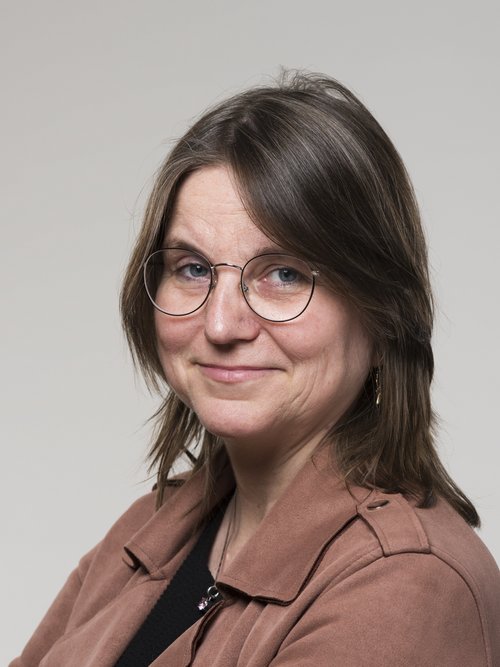From Dortmund to Weimar: Deputy Professor Dr. Sandra Huning
Since 1 October 2022, Dr. Sandra Huning has been Deputy Professor for Urban Planning at the Faculty of Architecture and Urbanism. Until 30 September 2024, the habilitated urban and spatial planner with a doctorate degree will be serving in place of Prof. Dr. Barbara Schönig, who has been appointed State Secretary in the Thuringian Ministry of Infrastructure and Agriculture (Thüringer Ministerium für Infrastruktur und Landwirtschaft).
During this period, Dr. Huning will be on leave of absence from the Technical University of Dortmund, where she has been an Academic Councillor in the Department of Urban and Regional Sociology at the Faculty of Spatial Planning since 2009. Before teaching at Technical University Dortmund, she held professional positions at institutions including the Technical University of Berlin, the Berlin-Brandenburg Academy of Sciences and Humanities, the German Academy of Sciences Leopoldina (now the National Academy of Sciences Leopoldina) and the Berlin Institute for Social Research.
Stays abroad during her time at school and her studies took her to Michigan in the United States and Grenoble, France. As a research assistant, she spent several months at the University of Milano-Bicocca, Italy, and as an Erasmus+ lecturer, she served at University College London, United Kingdom, and Aristotle University of Thessaloniki, Greece.
Four questions for Dr. Sandra Huning
What motivated you to come to the Bauhaus-Universität Weimar?
Here in Weimar, I’m looking forward to getting to know another interpretation of urban planning, one that is new to me. I previously served at the Faculty of Spatial Planning of Technical University Dortmund, where I also studied. There are similarities between the degree programmes in spatial planning, as it is referred to in Dortmund, and urban studies here in Weimar, but differences also exist. It fascinates me to see what it means to think about and teach urban planning in an urban studies context. Then there is also the fact that the degree programmes are embedded in a faculty that also concerns itself with architecture.
How did you experience the initial weeks in your role as Deputy Professor? Do you have points of intersection with other professorships and departments? If so, which ones?
I was given a very warm welcome at the Institute for European Urban Studies [IfEU] and was able to take part in a key meeting right as I arrived in the summer. In the first weeks in Weimar, my focus was on teaching. Serving on the jury of the faculty’s graduate exhibition at the beginning of November really helped me get an impression of the debates at the faculty. I’m only gradually entering into discussions about common research interests with colleagues from the IfEU and from architecture.
What are your primary areas of research?
In recent years, I mainly have done work on interculture in participatory urban development. In two living labs, within a research network we engaged in discussions with planners and residents in regard to how social diversity can be taken into account as a matter of course in the design of planning communication. Everyone knows in theory how »good participation« should work, but the actual implementation of such participation is difficult. We wanted to make the implicit barriers explicit.
In an ongoing joint project, I am working with colleagues on the topic of emotions in local planning conflicts and the question of how such conflicts can be dealt with. In principle, the project is also about planning communication: Planners are interested in factual arguments, but they naturally bring their own emotions to the table and also have to deal with the emotions with which they and their projects are confronted. However, this topic remains a blind spot.
How will you shape the profile of the professorship during the time you will be serving as Deputy Professor? What are your priorities?
Feminist perspectives on the city and on urban planning are central to my research and teaching and were also the focus of my habilitation. I am referring here not so much to questions of gender equality, which are of course also important, but above all to a critical perspective on standards and conditions. I would like to continue to reflect on this during my time in Weimar and to engage in conversation with colleagues and students. The topic of feminist urban planning is currently attracting a great deal of media attention, and even the Federal Construction Minister is talking about it. However, it seems to me that in many respects it is still an open question as to what feminist urban planning actually means. The debates in architecture may have made greater progress in this area. It would be nice if we were able to be successful in creating spaces for reflection on such matters.

